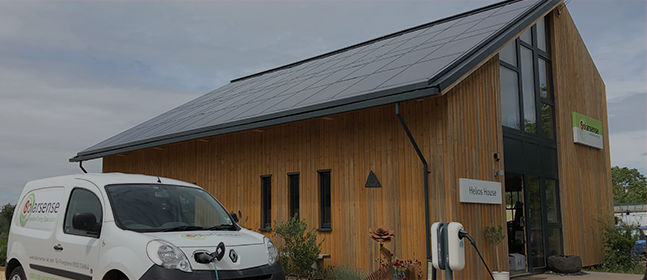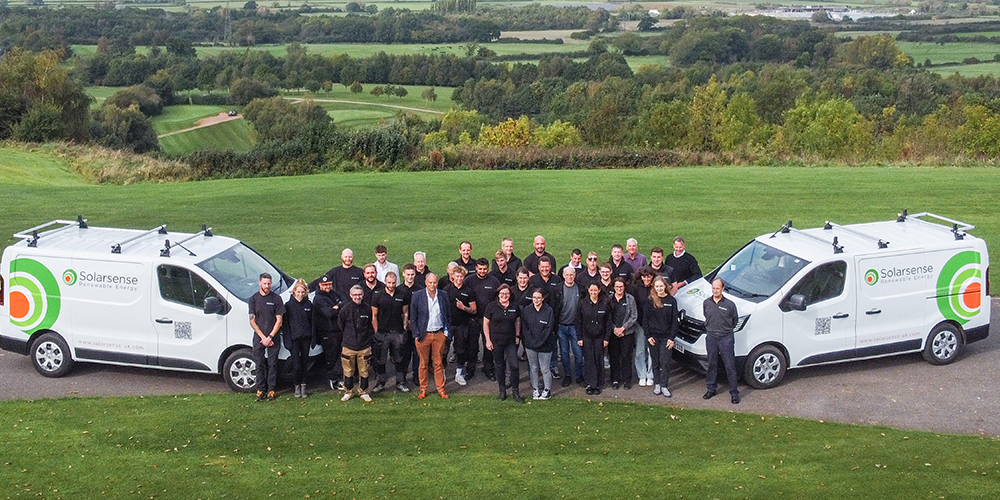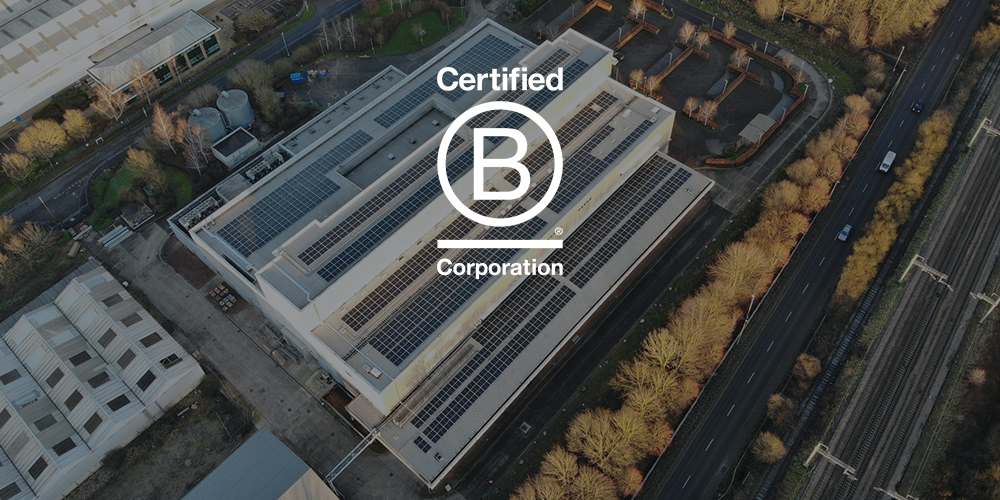
Recent Events
Net Zero: How can SME’s achieve this goal?
Solarsense hosted The Future Economy Network for an important business lunch event based on how small and medium enterprises can achieve a net zero energy goal.
To continue the organisation’s unofficial Green Great Britain Week, we welcomed The Future Economy Network to our zero carbon head office in North Somerset for one of their key events.
Solarsense and The Future Economy Network were joined by David McDonald, Nexus Capital Partners LLP and Dr Simon Russell Forsyth, CarbonLens for a series of talks on topics around corporate sustainability and how SME’s can reduce their carbon footprint.
Event details
Date: Tuesday 05 November 2019
Location: Helios House, Brockley Lane, Backwell, BS48 4AH
Event coverage
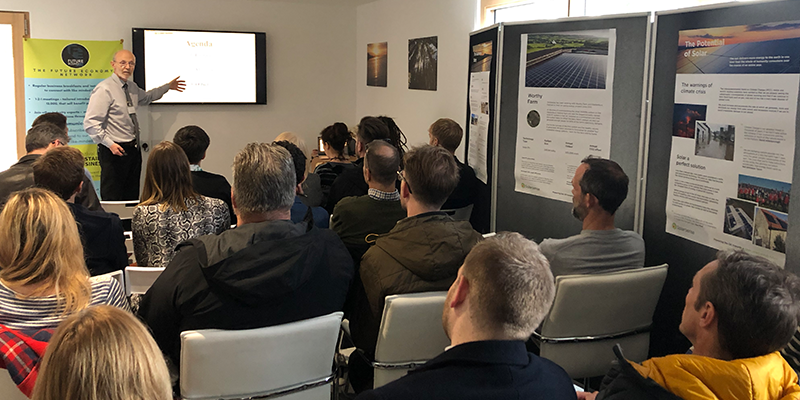
Simon Forsyth, CarbonLens
The event began with Simon Forsyth from CarbonLens, who explored the six steps of carbon accounting according to PAS 2060.
These steps cover calculating a business’ carbon footprint, minimising it, and finally offsetting what you can’t minimise. Simon began by looking at the boundaries to draw when calculating a carbon footprint; the three different scopes and how the raw data can be extracted. According to Simon, 60-80%
of the effort is in quantifying the relevant data. Once this is complete the next step is to set achievable targets, including realistic timescales and goals ready to implement, track and measure the results.
“Offsetting is an annual action, which many businesses forget. It is important to tell the truth and provide clear communication throughout the process.”
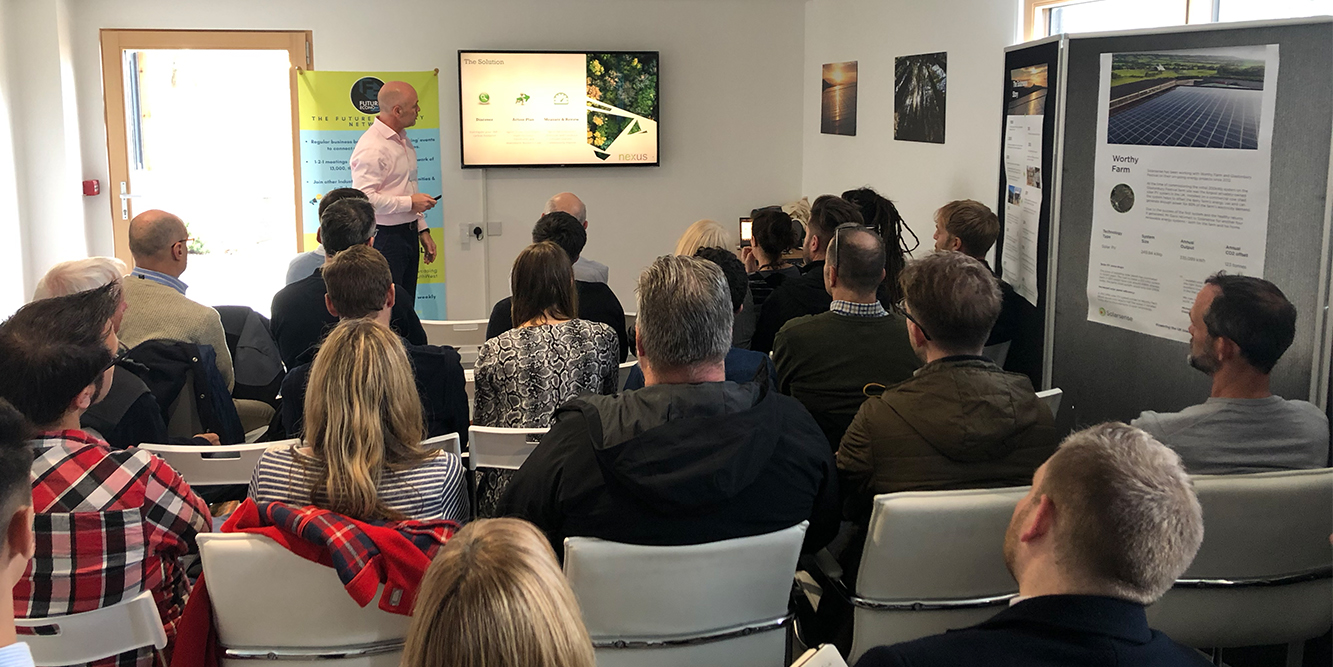
David McDonald, Nexus Capital Partners LLP
David talked us through how energy savings are also a means to financial savings (which is what board members want to hear). He highlighted the problem with measuring everything with GDP and how this doesn’t correlate with our planet’s finite resources.
David ran the group through some Nexus Capital Partners case studies and explained how the company has helped others to achieve a reduction in energy; showcasing that “making the business case” is essential to influence boardroom behaviour change. He finished by running through some financial support options that are available to UK SMEs.
“Customer perceptions are changing and businesses need to adapt to survive. There are many mixed messages from the media and the Government in relation to sustainability, so businesses have a huge opportunity to be at the forefront of making real change”.
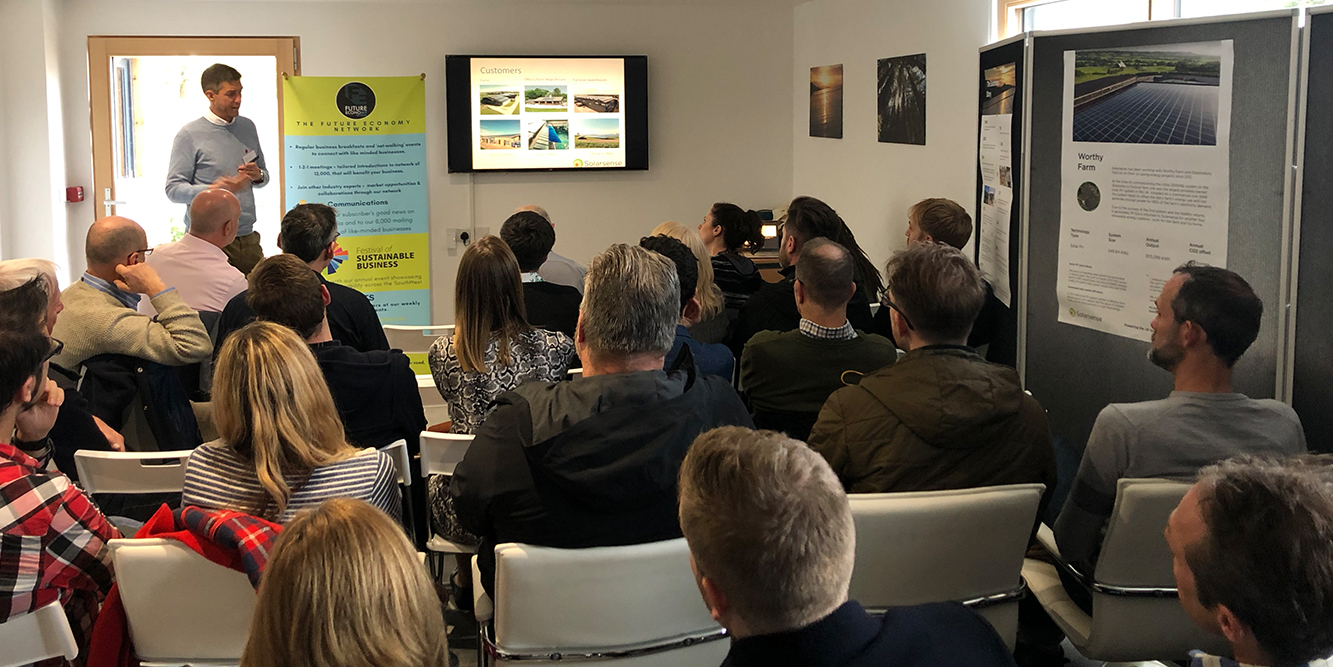
Tim Cook, Solarsense
Next up was our very own energy consultant, Tim Cook. Tim picked up on the “action” steps of the previous two speakers and placed a focus on commercial solar panel installation.
Tim made the case that although subsidies have ended, there is a strong financial case for investing in solar panels for your business. Those businesses that were subsidised before the cut off point paid far more per £/kW than a business investing now and therefore the economics are similar to before.
He highlighted the fact that we need a quicker action plan than the 2050 goal, and many businesses are reflecting this in their sustainability policies.
Tim finished by running through the financials, explaining that there has been a decline in the costs of solar panels and their installation. He provided a range of finance options, including power purchase agreements and how they work.
Helios House – Zero Carbon Office Tour
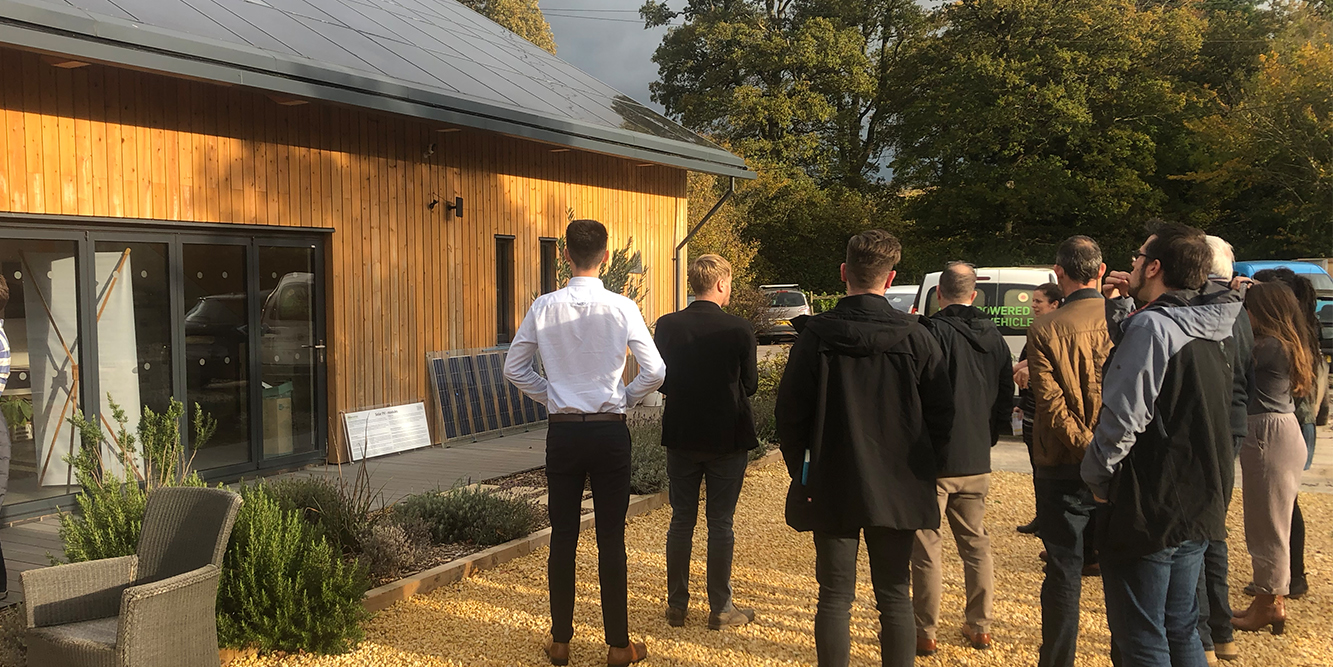
Helios House: integrated solar PV panels
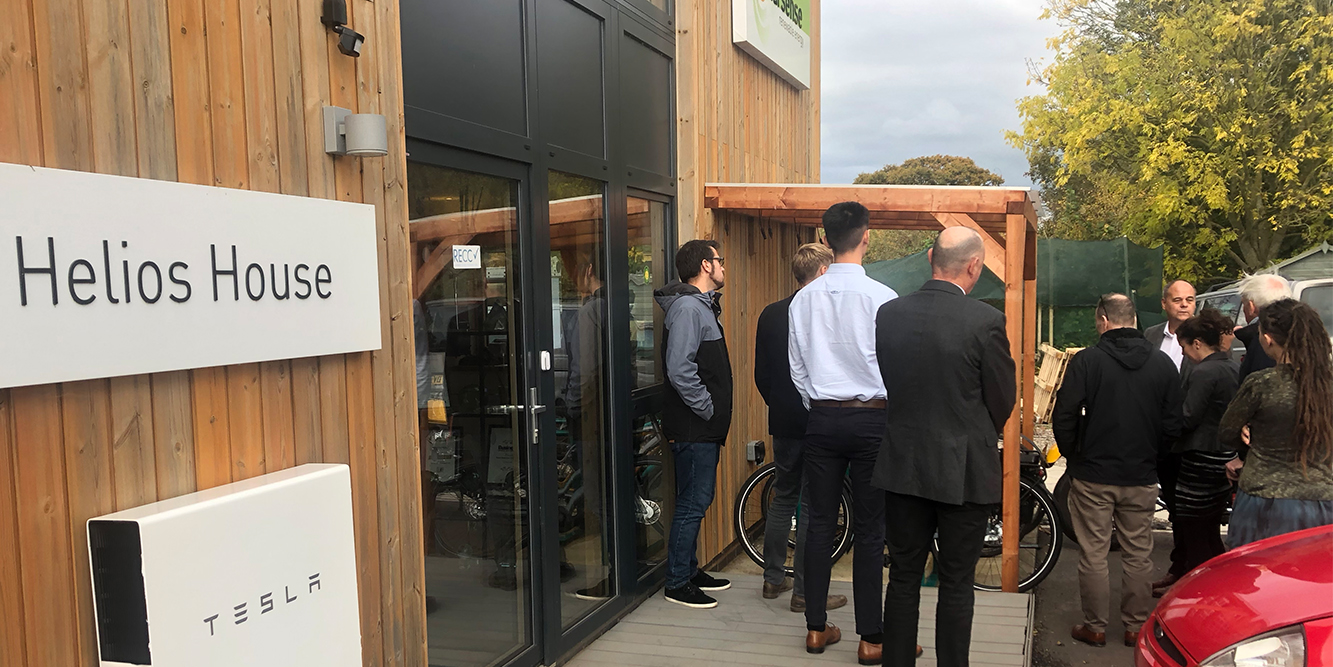
Helios House: Tesla powerwall battery
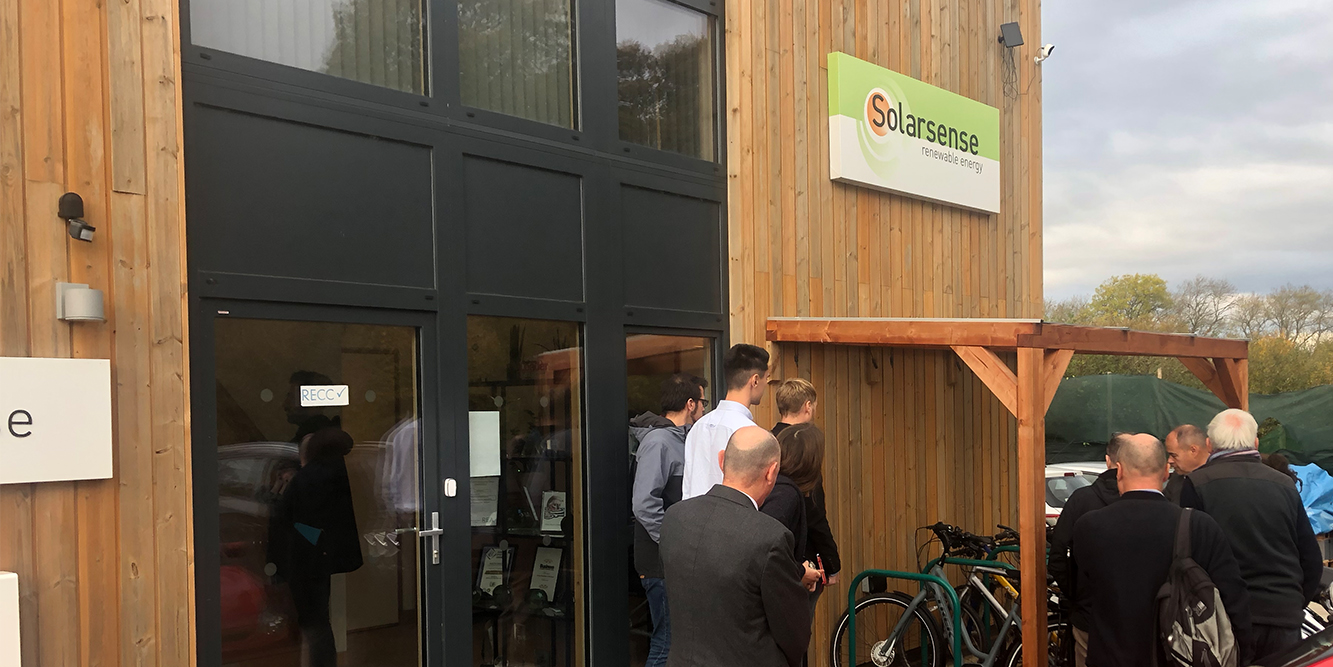
Helios House: solar bike rack
FURTHER NEWS
You might like…

